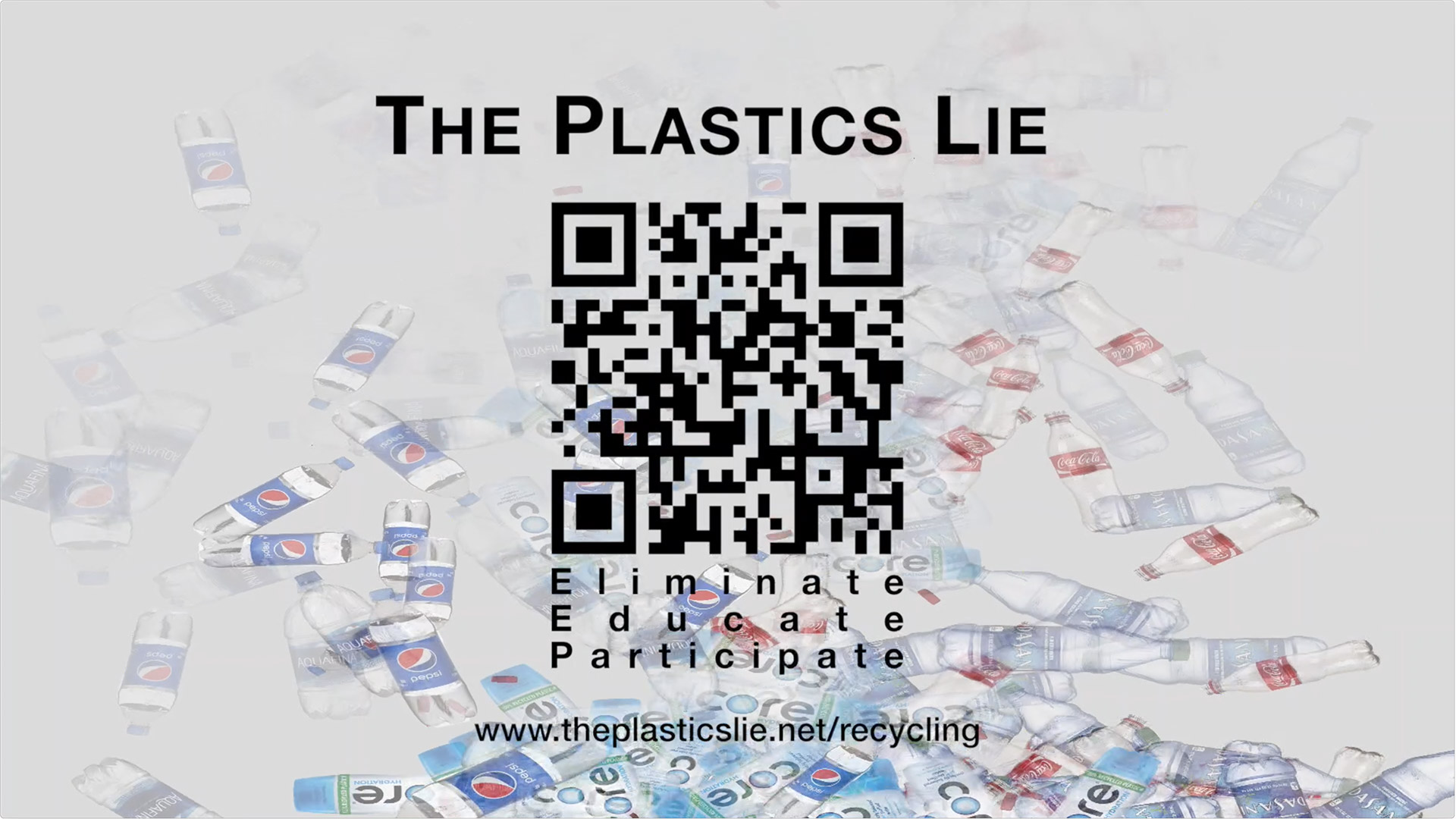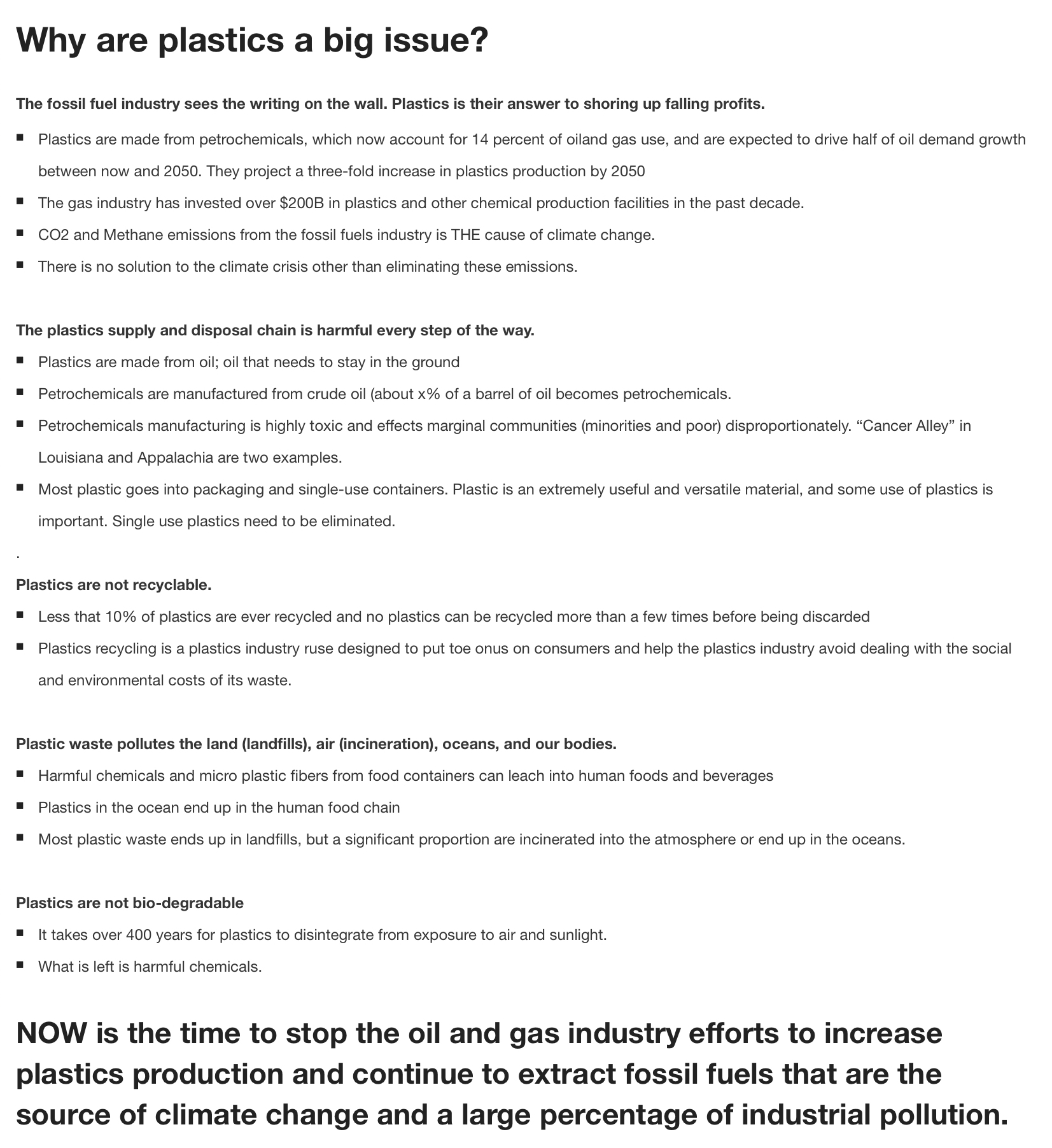- Educate
Why are plastics a big issue?
The fossil fuel industry sees the writing on the wall. Plastics is their answer to shoring up falling profits.
- Plastics are made from petrochemicals, which now account for 14 percent of oiland gas use, and are expected to drive half of oil demand growth between now and 2050. They project a three-fold increase in plastics production by 2050
- The gas industry has invested over $200B in plastics and other chemical production facilities in the past decade.
- CO2 and Methane emissions from the fossil fuels industry is THE cause of climate change.
- There is no solution to the climate crisis other than eliminating these emissions.
The plastics supply and disposal chain is harmful every step of the way.- Plastics are made from oil; oil that needs to stay in the ground
- Petrochemicals are manufactured from crude oil (about x% of a barrel of oil becomes petrochemicals.
- Petrochemicals manufacturing is highly toxic and effects marginal communities (minorities and poor) disproportionately. “Cancer Alley” in Louisiana and Appalachia are two examples.
- Most plastic goes into packaging and single-use containers. Plastic is an extremely useful and versatile material, and some use of plastics is important. Single use plastics need to be eliminated.
Plastics are not recyclable.- Less that 10% of plastics are ever recycled and no plastics can be recycled more than a few times before being discarded
- Plastics recycling is a plastics industry ruse designed to put toe onus on consumers and help the plastics industry avoid dealing with the social and environmental costs of its waste.
Plastic waste pollutes the land (landfills), air (incineration), oceans, and our bodies.- Harmful chemicals and micro plastic fibers from food containers can leach into human foods and beverages
- Plastics in the ocean end up in the human food chain
- Most plastic waste ends up in landfills, but a significant proportion are incinerated into the atmosphere or end up in the oceans.
Plastics are not bio-degradable- It takes over 400 years for plastics to disintegrate from exposure to air and sunlight.
- What is left is harmful chemicals.
NOW is the time to stop oil and gas industry efforts to dramatically increase plastics production and continue to extract fossil fuels that are the source of climate change and a large percentage of industrial pollution.
Dig Deeper
- Eliminate
- Use re-usable fabric shopping bags
- Take your own re-usable produce bags to the grocery store
- Don’t buy bottled water -carry a refillable water bottle instead
- Don’t buy other beverages in plastic containers
- Don’t buy produce or takeout in plastic clam-shell containers
- Reduce or eliminate use of zip-loc plastic bags
- Participate
There are currently many organizations working on reducing or eliminating plastics in our environment. They work to influence public policy, hold major plastic polluters accountable, and counter the greenwashing of the plastics and fossil fuel industries. These organizations provide many opportunities to volunteer and contribute.
- Activate
Join the campaign. Here are resources to take action.
The Plastics Recycling Lie video

Campaign badge
Campaign video badge
Green Head video: Plastics Recycling is a lie

Talking Points
#theplasticslie
#theplasticsrecyclinglie

Social Media
